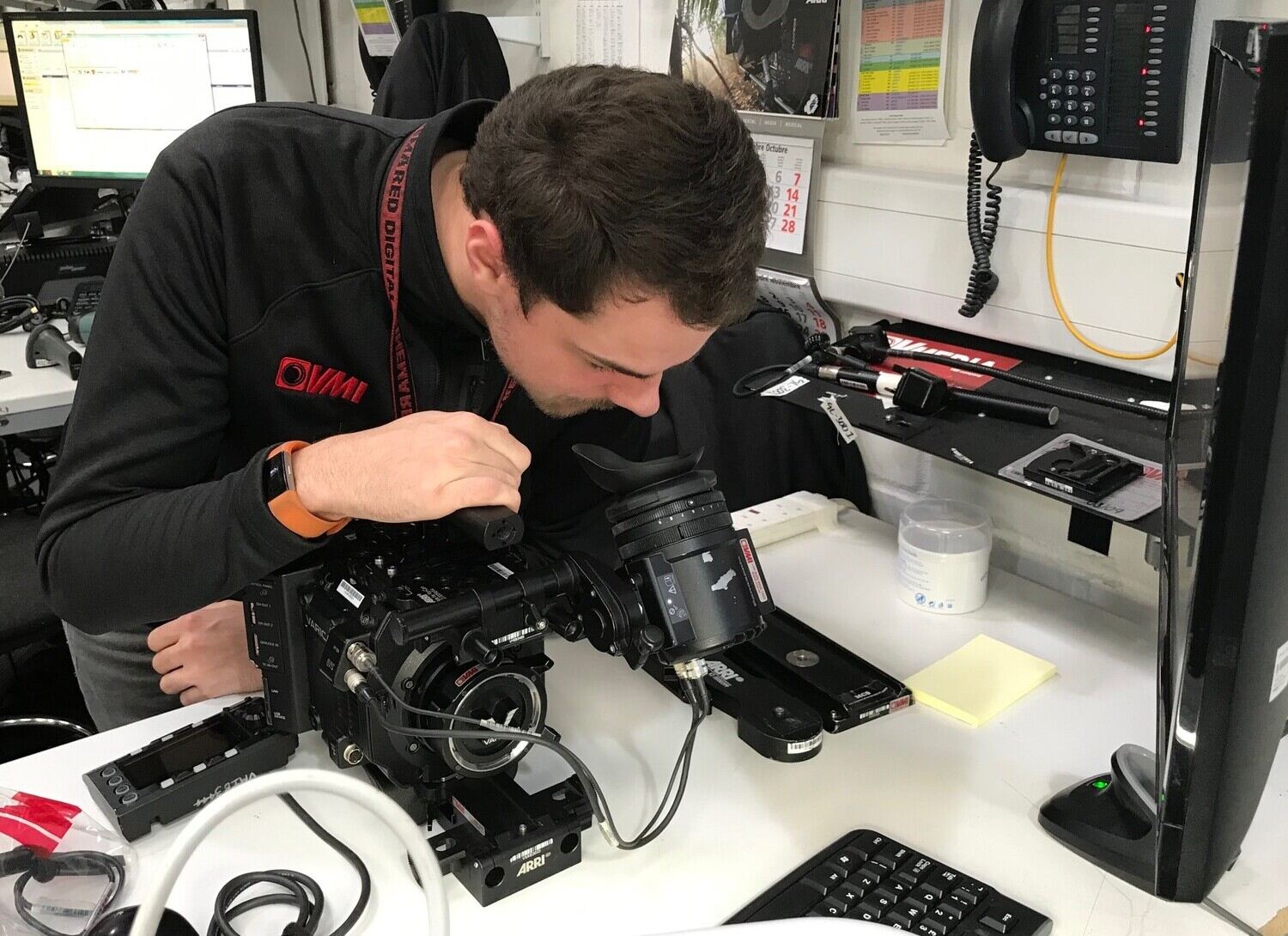
Camera technicians play an integral role in the world of photography and videography. Behind every perfect shot and smooth footage, there is a skilled technician working diligently to ensure that the camera equipment is in optimal condition. These unsung heroes of the industry possess a wealth of knowledge and expertise that allows them to troubleshoot, maintain, and repair cameras and related equipment.
In this article, we will delve into the fascinating world of camera technicians and explore some intriguing facts about their profession. From their extensive technical know-how to their ability to adapt to the advancements in camera technology, camera technicians are the backbone of the photography and film industry. So, let’s take a closer look at what makes them so vital and discover some lesser-known facts about these fascinating professionals.
Key Takeaways:
- Camera technicians are the unsung heroes of film and TV, ensuring cameras work smoothly, solving problems, and collaborating with the director of photography to capture stunning visuals.
- They possess deep knowledge of camera equipment, maintain focus, and adapt to changing conditions, constantly updating their skills to deliver the best results on every project.
Camera technicians play a crucial role behind the scenes of film and television production.
Camera technicians, also known as camera assistants or focus pullers, work closely with directors of photography to ensure that the cameras and related equipment are in optimal condition. They are responsible for setting up and operating the cameras, maintaining focus during shoots, and troubleshooting any technical issues that may arise.
Camera technicians possess in-depth knowledge of camera equipment and technology.
Camera technicians are experts in various types of cameras, lenses, and other intricate equipment used in the industry. They are well-versed in the technical aspects of photography such as aperture, shutter speed, and ISO settings. Their expertise allows them to adapt to different shooting conditions and achieve the desired visual effects.
Camera technicians ensure smooth camera movements and focus during filming.
One of the primary responsibilities of camera technicians is to maintain precise focus and smooth camera movements during filming. They use specialized tools like follow focus systems, remote controls, and stabilizers to achieve steady shots and accurately capture the intended subject.
Camera technicians assist in lighting setups and framing shots.
Camera technicians work closely with the camera department and other crew members to ensure proper lighting and framing of shots. They collaborate with gaffers and grips to position lights and create the desired atmosphere for each scene. They also provide input on shot composition and framing to capture the director’s vision.
Camera technicians are skilled problem solvers.
In the fast-paced world of film and television production, unexpected problems can arise at any moment. Camera technicians excel at troubleshooting technical issues, whether it’s fixing a malfunctioning camera, resolving focus issues, or ensuring the stability of camera rigs. Their quick thinking and problem-solving skills are invaluable on set.
Camera technicians are physically fit and adaptable.
The job of a camera technician often requires physical stamina and agility. They may need to carry heavy camera equipment, operate in challenging shooting environments, and adjust quickly to changing circumstances. Their physical fitness allows them to keep up with the demands of the job and capture footage effectively.
Camera technicians have a keen eye for detail.
Being responsible for maintaining focus and image quality, camera technicians have a meticulous attention to detail. They are adept at detecting even the slightest focus errors or technical imperfections that may affect the final product. Their precision ensures that every shot is visually captivating and meets the director’s vision.
Camera technicians work closely with the director of photography.
Camera technicians have a strong working relationship with the director of photography (DP). They collaborate closely to bring the DP’s creative vision to life. They discuss shot angles, camera movements, and lighting setups to achieve the desired visual aesthetic for each scene.
Camera technicians constantly update their skills and knowledge.
The world of camera technology is constantly evolving, and camera technicians strive to stay up to date. They attend workshops, seminars, and training sessions to enhance their skills and keep pace with the latest advancements in camera equipment and techniques. This continuous learning ensures that they can deliver the best results on every project.
Conclusion
In conclusion, camera technicians play a crucial role in the world of photography and videography. They are the behind-the-scenes experts who ensure that cameras are functioning optimally and capturing the best possible images and footage. With their technical knowledge, attention to detail, and problem-solving skills, they contribute significantly to the success of any production or photography project. The field of camera technology is constantly evolving, and camera technicians are at the forefront of these advancements, staying up-to-date with the latest equipment and techniques. So, the next time you see a stunning photograph or watch a breathtaking film, remember that there is a camera technician behind it all, making it possible.
FAQs
1. What does a camera technician do?
A camera technician is responsible for maintaining, repairing, and calibrating camera equipment. They ensure that cameras are functioning properly and producing high-quality images or footage.
2. How do I become a camera technician?
To become a camera technician, it is advisable to pursue a degree or certification in photography, film, or a related field. Additionally, gaining practical experience through internships or assisting experienced camera technicians can be beneficial.
3. What skills are required to become a camera technician?
Some essential skills for a camera technician include technical knowledge of cameras and related equipment, troubleshooting abilities, attention to detail, and strong communication skills.
4. Are camera technicians in demand?
Yes, camera technicians are in demand, especially in the field of photography, videography, and film production. As the industry continues to grow, the need for skilled camera technicians also increases.
5. Can a camera technician work freelance or do they typically work for a company?
Camera technicians can work both as freelancers and within a company or production team. It depends on their preferences and the type of projects they take on.
Fascinated by camera technicians' expertise? Delve deeper into photography and videography with our informative articles. Discover essential facts about digital cameras, find the perfect camera equipment for your next adventure, and explore cutting-edge videography tools to elevate your skills.
Was this page helpful?
Our commitment to delivering trustworthy and engaging content is at the heart of what we do. Each fact on our site is contributed by real users like you, bringing a wealth of diverse insights and information. To ensure the highest standards of accuracy and reliability, our dedicated editors meticulously review each submission. This process guarantees that the facts we share are not only fascinating but also credible. Trust in our commitment to quality and authenticity as you explore and learn with us.


